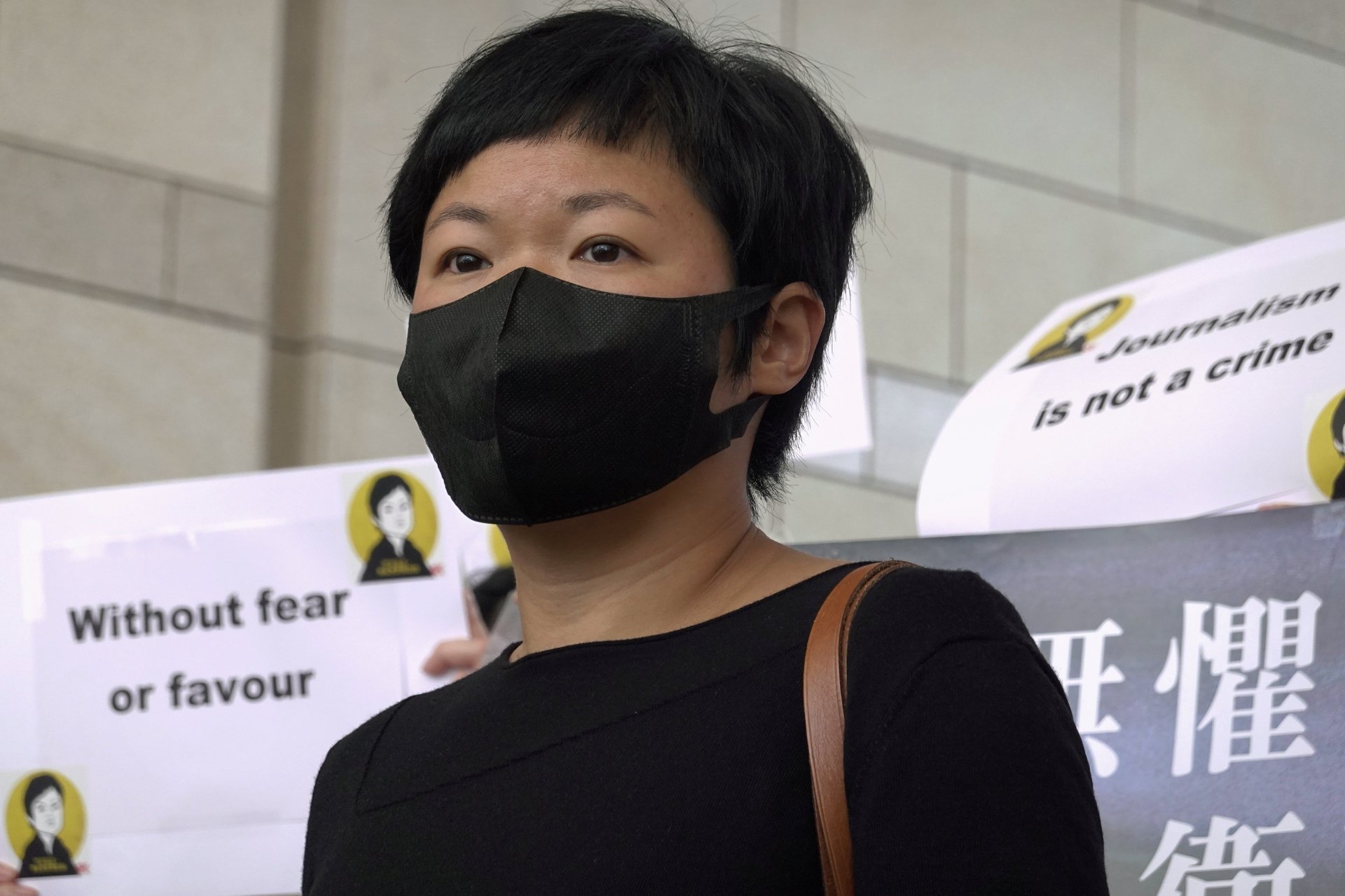A Hong Kong investigative journalist was convicted for a public records search
A mantra of press freedom advocates is that “journalism is not a crime.” But a mainstay of investigative journalism—public records database searches—has just effectively been criminalized in Hong Kong, where the press is already under immense pressure from Beijing’s crackdown.


A mantra of press freedom advocates is that “journalism is not a crime.” But a mainstay of investigative journalism—public records database searches—has just effectively been criminalized in Hong Kong, where the press is already under immense pressure from Beijing’s crackdown.
Bao Choy Yuk-ling, a 37-year-old investigative journalist and freelance producer for public broadcaster Radio Television Hong Kong (RTHK), was today found guilty of making a false statement while searching a public vehicle registration database as part of her investigation into a violent gang attack in July 2019, when a pro-Beijing mob of armed thugs beat protesters and commuters in the suburban train station of Yuen Long. Choy was arrested in November, just a few months after the airing of her investigative documentary into the attack, titled “7.21 Who Owns The Truth.”
Choy and her RTHK colleagues were investigating the failure of the police to respond to the Yuen Long attack despite thousands of frantic calls, viewed by many as one of the Hong Kong protests’ darkest moments. Police officers only arrived at the scene of the attack 39 minutes after the assaults started, by which time the mob had already left. That inexplicable lapse severely damaged public trust in the city’s police force. No assailants have been found guilty so far and the police have since distorted and rewritten the history of the mob attack as a “clash” between evenly matched groups. Choy, a journalist investigating the incident, is the only person to have been convicted in relation to the Yuen Long attack.
The prosecution’s case against Choy hinged on a key claim: that by failing to declare that her records search was for journalistic purposes, she knowingly made a false statement in filling out a form to request the vehicle registration data—a crime under Hong Kong’s traffic laws and punishable by a fine or up to six months in prison. Choy was fined HK$6,000 ($770).
The claim that Choy made a false statement while carrying out her reporting is a controversial one. Journalists have long used public databases to look up land records, corporate details, and vehicle license information. Over the years, reporters have uncovered scandals involving senior government officials and unwound complex webs of money and politics. By arresting, charging, and now convicting Choy, the Hong Kong government has sent yet another chill through the embattled press corps, further restricting the reporting landscape by telling the media industry in no uncertain terms that even routine acts of reporting bring a risk of criminal prosecution. Meanwhile, the government is blocking public access to personal information of executives through company registry searches, in a move that critics say will “facilitate corruption, fraud, and other crimes.”
In convicting Choy, the court also set a precedent. To access the vehicle registration data, Choy had to choose between three options as her purpose of the public data request: legal proceedings; buying or selling a vehicle; or other traffic and transit related matters. She chose the latter in order to look up the ownership information on a car plate of a vehicle seen near the scene of the Yuen Long attack. In her ruling, the judge decided that Choy’s reporting was unrelated to traffic or transit, and therefore amounted to a false statement.
Earlier an option existed to select “other” and specify a journalistic purpose.
But the form was changed in October 2019, leaving no suitable option that Choy could have selected. In effect, this now criminalizes all journalists’ license plate searches in Hong Kong.
Choy’s conviction comes as Hong Kong and Beijing authorities have cracked down on civil society, with the media as a prime target of state repression. Last August, police raided the offices of pro-democracy newspaper Apple Daily, and arrested its publisher Jimmy Lai on charges of collusion under the national security law. Last week he was sentenced for two convictions of participating in an unauthorized assembly, and will serve 14 months.
Meanwhile, a career bureaucrat with no media experience was appointed director of broadcasting at RTHK, where he has since censored multiple episodes. And just last week, masked men ransacked the offices and destroyed printing presses of the Epoch Times, a Hong Kong newspaper critical of the Chinese Communist Party. Just days later, the police commissioner threatened to arrest and press charges against any journalist deemed to be publishing “fake news,” without defining what makes something fake or who is empowered to make judgment.